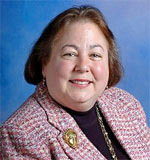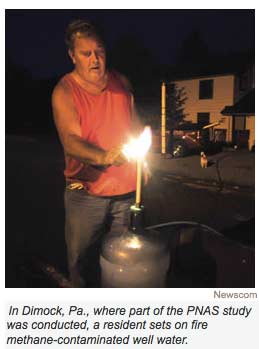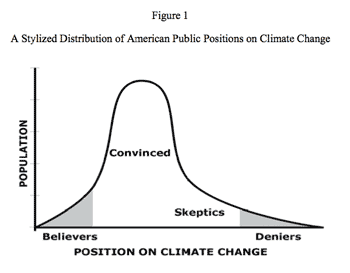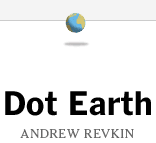Biblio
For the first time, a scientific study, has linked natural gas drilling and hydraulic fracturing with a pattern of drinking water contamination so severe that some faucets can be lit on fire.
The peer-reviewed study, published today in the Proceedings of the National Academy of Sciences, stands to shape the contentious debate over whether drilling is safe and begins to fill an information gap that has made it difficult for lawmakers and the public to understand the risks...
They were alarmed by what they described as a clear correlation between drilling activity and the seepage of gas contaminants underground, a danger in itself and evidence that pathways do exist for contaminants to migrate deep within the earth.
"We certainly didn't expect to see such a strong relationship between the concentration of methane in water and the nearest gas wells. That was a real surprise," said Robert Jackson, a biology professor at Duke and one of the report's authors.
See: U.S. Congress. Committee on Space, Science, and Technology. "Hearing Highlights Lack of Objectivity in Draft EPA Fracking Study--No Evidence of Drinking Water Contamination from Fracking, Witnesses Say". May 11, 2011
Methane Fouls Water
See also: Ritter, Stephen K., and Glenn Hess. “Methane Fouls Well Water.” Chemical & Engineering News, May 16, 2011.
A study by Duke University researchers provides the first scientific confirmation of a link between natural gas drilling in organic-rich shale deposits and methane-contaminated residential well water. The study’s release has rekindled the debate among the oil and gas industry, environmental advocacy groups, and lawmakers over health and safety concerns about natural gas drilling methods, which are largely unregulated.
When environmental chemist Robert B. Jackson and coworkers at Duke University sampled 68 residential wells in south central New York and northeastern Pennsylvania, they found no evidence that chemicals used in hydraulic fracturing—or fracking, the most widely used drilling method to extract methane from shale beds—had percolated into drinking water, as some fear.
The scientists instead found that water wells within 1 km of active gas extraction sites had methane levels of 19.2 mg/L on average, compared with 1.1 mg/L on average in wells in inactive areas farther from drilling sites (Proc. Natl. Acad. Sci. USA, DOI: 10.1073/pnas.1100682108). The federal methane action level is 10 mg/L, above which ventilation is recommended for safety...
Full Text:
Osborn, Stephen G., Avner Vengosh, Nathaniel R. Warner, and Robert B. Jackson. “Methane contamination of drinking water accompanying gas-well drilling and hydraulic fracturing.” Proceedings of the National Academy of Sciences 108, no. 20 (May 17, 2011): 8172 -8176.
As I see it, there are two incommensurate stories being told about climate change. I'm not talking about the largely fake debate between those who say climate change is happening and human-driven (scientists) and those who say it isn't (the GOP).
I'm talking about two different ways of envisioning what we can expect in a climate-changed future, both of which exist among people who take climate change seriously. Sometimes they take up residence in the same head! Like, er, mine. But they don't fit together very well. One comes to us from science, the other from economics.
...Getting clear on this is ultimately going to require a lot of progress in both science and economics. But for my part, when I see scientists panicking and economists telling me not to panic ... my palms start sweating.
...We are stumbling around in the dark, in an area where scientists tell us some very, very nasty beasties dwell. In that situation, it seems to me the overwhelming bias should be toward action -- getting lean, mean, and nimble enough to handle ourselves no matter what slouches our way.
See: EPA chief faces hostile House GOP
See: Beware The Green Dragon! | Right Wing Watch
See: Energy & Commerce Committee Investigates Potential Impacts of Hydraulic Fracturing
See also: Republicans ask court to toss climate case
Grist Staff Bio
David Roberts, Staff Writer
droberts@grist.org
206.876.2020 ext. 220
David was born and raised in the South. A revelatory summer working in Yellowstone National Park convinced him that it was not the world but just the part where he lived that sucked, so he moved out West. After several wayward years spent snowboarding and getting an MA in philosophy (go griz), he woke up with nothing but a dissertation between him and an arid, cloistered life spent debating minutiae with the world's other 12 Dewey scholars. So he bailed. A period was spent trudging through the swamp of Seattle tech work, wading past Amazon.com, IMDb.com, and Microsoft, before the fine folks at Grist fell for his devastating good looks in December 2003.
Listening to climate change doubters, and not dismissing them, might avert a "logic schism" similar to the political stalemate on abortion, according to a new paper involving research on skeptics.
The paper (pdf) portrays doubters as being at a disadvantage. The majority of climate research comes from the fields of physical science, engineering and economics -- largely depicting rational outcomes in a world dominated by the view that the Earth is warming, and that something needs to be done about it.
What's missing, the research says, are studies that seek to understand the cultural responses of people who question those findings. It's no surprise, after all, that a large segment of humans resist the majority opinion -- on nearly every topic.
Most skeptical writers haven't accepted the scientific underpinnings of rising temperatures, while advocates for action are promoting policies to address the findings.
See: Global Warning | The environment and national security.
See: Hoffman, Andrew J. “Talking Past Each Other? Cultural Framing of Skeptical and Convinced Logics in the Climate Change Debate.” Ann Arbor 1001 (2011): 48109.
See: Kate. (Blog). ClimateSight | Climate Science and the Public. 2011.
Kate is a B.Sc. student and aspiring climatologist from the Canadian Prairies.
She became interested in climate science several years ago, and increasingly began to notice the discrepancies between scientific and public knowledge on climate change. She started writing [ClimateScience] when she was sixteen years old, simply to keep herself sane, but she hopes she’ll be able to spread accurate information far and wide while she does so.
A list of blogs by members of the Society of Environmental Journalists covering the environment.
The mission of the Society of Environmental Journalists is to strengthen the quality, reach and viability of journalism across all media to advance public understanding of environmental issues.
SEJ provides critical support to journalists of all media in their efforts to cover complex issues of the environment responsibly.
Society of Environmental Journalists Selected Blogs
Coal Tattoo
Ken Ward Jr. of The Charleston Gazette writes about mining's mark on our world.
How to Boil a Frog
Jon Cooksey's funny treatment of the Big Picture — global warming, peak oil, overpopulation, shrinking resources, income inequality — reflects the personal, populist tone and broad scope of his upcoming theatrical docu-comedy of the same name.
Andrew Revkin's Dot Earth and more.
New York Times man Revkin blogs at Dot Earth about climate change, the environment and sustainability; at Amazon on global warming; and also talks to kids via this NYT global warming website.
South Africa’s Cabinet endorsed the Department of Mineral Resources’ decision to declare a moratorium on natural-gas drilling in the Karoo region, halting plans by Royal Dutch Shell Plc (RDSA), Europe’s largest oil company.
The department will lead an investigation into the implications of hydraulic fracturing, or fracking, that will include assessing the environmental effects, government spokesman Jimmy Manyi told reporters in Pretoria today.
“Cabinet has made it very clear that a clean environment together with all the ecological aspects will not be compromised,” Manyi said. The cabinet is aware of the “urgency that is required in this respect,” he added.
Royal Dutch Shell applied for permission to drill about 24 wells in an area of about 90,000 square kilometers (34,749 square miles). The company faces opposition in the sheep- and game-farming region, an arid stretch across northwest South Africa, from the Treasure the Karoo Action Group, which fears environmental damage.
See: Aragom Eloff. Ivo Vegter vs. the Fracking Fringe. 2011-04-18.
See: Julienned DuToit. Fracking the Karoo - The People Say No! 2011-01-31.
See: Lewis Pugh. Frack Off, Shell!. 2011-04-05
See: Donald Paul. Drill Baby Drill. 2011-04-18.
On the day of a large rally outside the Capitol, Senate Democrats introduced the first significant legislation against hydraulic fracturing since the 2010 moratorium imposed by former Gov. David Paterson and the Department of Environmental Conservation.
Sens. Tony Avella, D-Whitestone, Liz Krueger, D-Manhattan, and Joseph Addabbo, D-Queens, introduced a package of bills April 11 that includes three bills for tighter regulations and transparency for oil and gas drilling and a bill by Avella to ban hydraulic fracturing, or hydrofracking, in New York State.

"I don't see it as that great of a request to require these gas companies to inform the public on what chemicals they're blasting into the Earth," said Krueger. "They want us to just fall in line and not ask any questions, to just trust them. Well, we saw what they did with Pennsylvania's trust, and I say no."
She was referring to a lawsuit filed by 31 Pennsylvania residents against the Southwest Energy Co. accusing the company of contaminating their water supplies for drinking, cooking and bathing with hazardous chemicals and pollutants as a result of hydrofracking.
Krueger's bill (S.425) would prohibit the use of fracking fluids "containing chemicals that pose a risk to human health." Also in the package is S.4251-a, a bill sponsored by Addabbo, that would require treatment facilities to test waste from hydraulic fracturing operations for radioactivity. The Assembly bill (A.2922) is sponsored by Robert Sweeney, D-Babylon...
See: New York State Assembly Passes Moratorium on Hydrofracking | Governor Vetoes Bill
A Systems Approach to Energy Transitions
Presentations from the Conference held on March 30-31, 2011 in Watkins Glen, NY.
Timothy W. Kelsey, Ph.D., State Program Leader, Economic & Community Development, Penn State University
Marcellus Shale Gas Drilling: What Should We Plan For?
Susan Christopherson, Dept. of City and Regional Planning, Cornell University
Energy Planning in New York State
John Williams, Director of Energy Analysis, NYSERDA
Albert R. George, Ph.D., Mechanical , Aerospace & Systems Engineering, Cornell University
Natural Gas, Wind and Biofuels
Jeffrey Jacquet, Ph.D. candidate, Dept. of Natural Resources, Cornell University
Supplies of Sustainably Produced Biomass in New York
Timothy A. Volk, Sr. Research Associate, SUNY Environmental School of Forestry
Pennsylvania Energy Impacts Assessment
Nels Johnson, Deputy State Director, The Nature Conservancy, Pennsylvania Chapter
Planning for Energy Transitions
Daniel A. Spitzer, Partner, Hodgson Russ LLP
- « first
- ‹ previous
- 1
- 2
- 3























